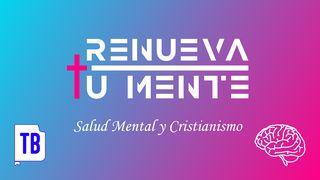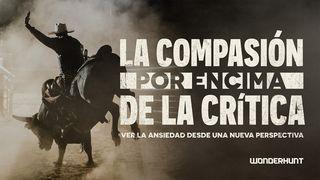Building a Stronger Faith With the PsalmsMuestra

When’s the last time life threw you a curve ball?
The car broke down, and the repair bill has too many zeroes.
The routine blood work returned, and the doctor is concerned with more tests underway.
The person you trusted and were transparent with betrayed you, and you feel deeply wounded.
All of these experiences fit the definition of disorientation. They are the subject of what biblical scholars call “laments.”
Author Walter Bruggemann defined laments this way. “Lament is caused by disorienting events or circumstances that make unsense of the world we try so hard to render sensible.”
The people of Israel saw God as a safe place to run to when life left them disoriented, and they struggled to make sense of things.
God was a safe place to lament. Many scholars would classify over 40% of the psalms as laments.
One powerful lament is Psalm 13. The chapter begins with David asking God some hard questions.
“How long, Lord? Will you forget me forever? How long will you hide your face from me? How long will I store up anxious concerns within me, agony in my mind every day? How long will my enemy dominate me?”
The second principle you need to know to build a stronger faith is healthy relationships produce unguarded conversation.
When was the last time you had an unguarded conversation with God? Do you feel free to be honest with God about your doubts?
Friend, I want you to know that there is no better person to approach with your big questions. Many of us grew up in environments where we didn’t feel this freedom. If you’re like me, you had authority figures who acted as if they never struggled in their faith, dismissing your questions.
You need to know that faith is not incongruent with doubt. Expressing doubt is a sign of health in your faith and relationship with God.
The late pastor and prolific writer Timothy Keller created a powerful word picture of doubt.
“A faith without some doubts is like a human body with no antibodies in it. People who blithely go through life too busy or indifferent to ask the hard questions about why they believe as they do will find themselves defenseless against either the experience of tragedy or the probing questions of a smart skeptic. A person’s faith can collapse almost overnight if she failed over the years to listen patiently to her own doubts, which should only be discarded after long reflection.”
The question isn’t whether God can take your doubt because the psalms show He can. The question is whether your faith can survive not expressing it. Research by Dr. Kara Powell on high school students found that 7 in 10 had significant doubts about God and faith. However, less than half of those students discuss their struggles with ministry leaders or peers. ”Research has shown it’s not doubt that’s toxic to faith. It’s silence.”
Unexpressed doubt is toxic to faith. We must give voice to the chaos we’ve encountered in the world. We must take those doubts, questions, and hurts to God to develop a stronger faith.
So, what do you need to tell God about today? What have you not expressed to Him? Read the passages associated with this devotional, and then begin your most honest prayer in a while.
Tomorrow, we’ll examine the difference between gossip and prayer. This shift has changed how I relate to God.

Escritura
Acerca de este Plan

A strong faith can feel impossible when you are overwhelmed with doubts and questions. That kind of faith seems impossible today. But, what if you didn't have to wait for that day? What if it were available now? Today, you can build a stronger faith when you follow the pattern found in the Psalms. This plan will show you how faith and doubt can co-exist together.
More
Planes relacionados

Rescatados Por Gracia

Renueva Tu Mente

Una Oración Bíblica Por Los Esposos

Nuevos Comienzos Con Dios

Amando Más La Palabra De Dios

De orilla a orilla: un viaje hacia la reconciliación

De La Vergüenza a La Seguridad

La Compasión Por Encima De La Crítica: Ver La Ansiedad Desde Una Nueva Perspectiva

Eclesiastés Consejos Para La Vida
